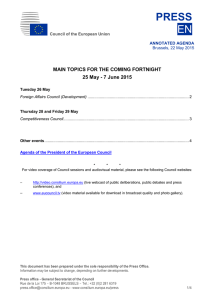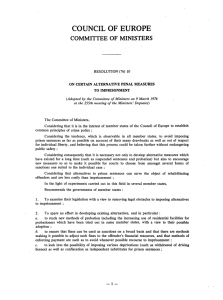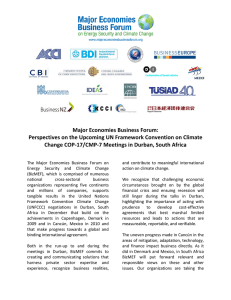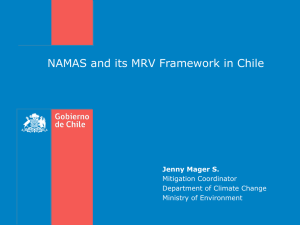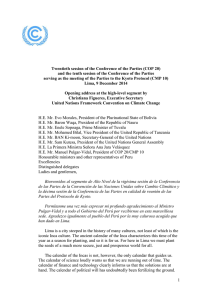Joint Statement issued at the conclusion of the Fourth Meeting of
Anuncio
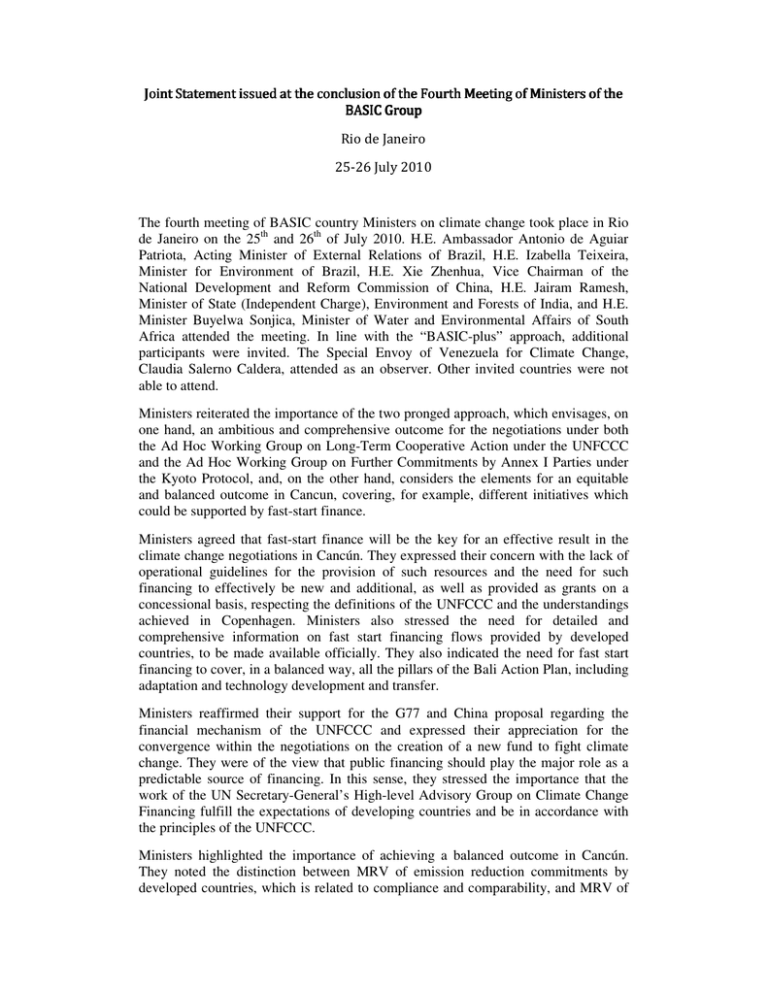
Joint Statement issued at the conclusion of the Fourth Meeting of Ministers of the BASIC Group Rio de Janeiro 25-26 July 2010 The fourth meeting of BASIC country Ministers on climate change took place in Rio de Janeiro on the 25th and 26th of July 2010. H.E. Ambassador Antonio de Aguiar Patriota, Acting Minister of External Relations of Brazil, H.E. Izabella Teixeira, Minister for Environment of Brazil, H.E. Xie Zhenhua, Vice Chairman of the National Development and Reform Commission of China, H.E. Jairam Ramesh, Minister of State (Independent Charge), Environment and Forests of India, and H.E. Minister Buyelwa Sonjica, Minister of Water and Environmental Affairs of South Africa attended the meeting. In line with the “BASIC-plus” approach, additional participants were invited. The Special Envoy of Venezuela for Climate Change, Claudia Salerno Caldera, attended as an observer. Other invited countries were not able to attend. Ministers reiterated the importance of the two pronged approach, which envisages, on one hand, an ambitious and comprehensive outcome for the negotiations under both the Ad Hoc Working Group on Long-Term Cooperative Action under the UNFCCC and the Ad Hoc Working Group on Further Commitments by Annex I Parties under the Kyoto Protocol, and, on the other hand, considers the elements for an equitable and balanced outcome in Cancun, covering, for example, different initiatives which could be supported by fast-start finance. Ministers agreed that fast-start finance will be the key for an effective result in the climate change negotiations in Cancún. They expressed their concern with the lack of operational guidelines for the provision of such resources and the need for such financing to effectively be new and additional, as well as provided as grants on a concessional basis, respecting the definitions of the UNFCCC and the understandings achieved in Copenhagen. Ministers also stressed the need for detailed and comprehensive information on fast start financing flows provided by developed countries, to be made available officially. They also indicated the need for fast start financing to cover, in a balanced way, all the pillars of the Bali Action Plan, including adaptation and technology development and transfer. Ministers reaffirmed their support for the G77 and China proposal regarding the financial mechanism of the UNFCCC and expressed their appreciation for the convergence within the negotiations on the creation of a new fund to fight climate change. They were of the view that public financing should play the major role as a predictable source of financing. In this sense, they stressed the importance that the work of the UN Secretary-General’s High-level Advisory Group on Climate Change Financing fulfill the expectations of developing countries and be in accordance with the principles of the UNFCCC. Ministers highlighted the importance of achieving a balanced outcome in Cancún. They noted the distinction between MRV of emission reduction commitments by developed countries, which is related to compliance and comparability, and MRV of nationally appropriate mitigation actions (NAMAs) by developing countries, which is related to transparency. Ministers emphasized that work on the MRV of international support must advance urgently, including through the development of common procedures for the reporting of finance. They underscored that only supported NAMAs should be subject to international MRV, in conjunction with the MRV of international support, while non-supported NAMAs will apply a domestic MRV. International consultations and analysis of information regarding non-supported actions would be useful to enhance transparency, through a multilateral technical exchange under the UNFCCC. Ministers also underscored their support for the aspirational objective of keeping global temperature increase below 2oC with regard to pre-industrial levels, bearing in mind that social and economic development and poverty eradication are the first and overriding priorities of developing countries. A global goal for emission reductions should be preceded by the definition of a paradigm for equitable burden sharing. They emphasized that equitable access to carbon space must be considered in the context of sustainable development, the right to which is at the heart of the climate change regime, and which demands the implementation of ambitious financing, technological support and capacity building. Following the guidance defined by Ministers at their Cape Town meeting, experts from BASIC countries met and exchanged views on issues of equity. Ministers welcomed the results of these consultations. They underlined the need for further collaboration among BASIC experts on this issue, with a view to understanding the economic, social, scientific and technical implications of equitable access to carbon space and strengthening a common consideration of this matter. Ministers emphasized the issue of equitable access to carbon space as a central element in the building of a balanced and comprehensive outcome for the climate change negotiations. Ministers emphasized the importance of the unity of the Group of 77 and China and its role in multilateral negotiations, including in the construction and strengthening of the climate change regime. They also highlighted the role of BASIC as part of the Group of 77 and China and the importance that the BASIC countries maintain their full participation in the discussions and activities of the Group. In thanking the representative of Venezuela for her presence and meaningful contribution, they decided to continue the “BASIC-plus” approach in order to foster transparency and benefit from a variety of views on climate change issues. They also agreed to broaden consultations with other groups of countries, with a view to actively contribute to a successful and ambitious outcome in Cancún and beyond. Ministers welcomed the offer of China to host the Fifth Meeting of Ministers of the BASIC Group on the 10th and 11th of October and commented on the strategic nature of the meeting as preparation for the Sixteenth Conference of the Parties to the UNFCCC (COP-16) and the Sixth Meeting of the Parties to the Kyoto Protocol (CMP-6). A meeting of experts would be held alongside this Ministerial meeting, in order to take forward the discussions on equitable access to carbon space and also address issues related to trade policy and climate change.

